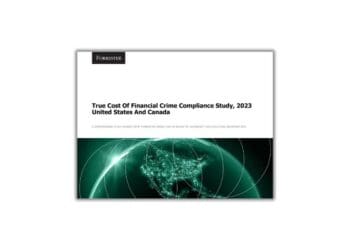One person’s harmless inducement is another’s criminal bribe. With customs, mores and laws that vary by culture, what constitutes bribery in each business context is not always clear. Help your employees and protect your company by providing clear context and explicit rules.
I was out the other day and overheard a mother trying to coerce her son to get back into his pram so they could go home. “If you get back in your pram, I will give you another biscuit.”
The boy thought about it, weighed the pros and cons, got into his pram and duly received his biscuit. Does this constitute a bribe or an incentive?
A couple of days later, I was shopping in the local supermarket and saw a packet of chocolate with a sign that said, “New item, two for the price of one.” Again, is this a bribe or an incentive?
It occurred to me that from a very early age, we are exposed to bribes, incentives and forms of coercion. We use these to get children to do something we want them to do. The use of incentives is commonplace in business to coerce people into buying one product over another. We are surrounded by examples that the average person would loosely describe as a bribe.
As a result, we grow up being exposed to bribe-like activities — with an important distinction: The intent of these actions is not criminal in nature:
- The mother is not coercing her son to do anything illegal; she is just incentivizing him into an action that she wants him to take.
- The two-for-one deal is not illegal. Some would say it is a widely accepted business practice to incentivize customers to try a different brand in hopes that they continue to buy it after the special deal has finished.
So, when a company presents but does not provide detail for its anti-bribery policies, it is not surprising that some employees may go on, in all innocence, to commit illegal acts.
Explaining the Context of Bribes, Facilitation Payments and Incentives
We all know that bribes can masquerade as tips, gifts, favors, donations or other, more inventive items of value. In some countries and cultures, what others view as bribery is often customary.
- Bribing the police: For example, in the United States and most Western countries, it is not legal to offer payment to a police officer to avoid a penalty for a violation. However, in some countries (South Africa, for example), it is very common and even expected, even if technically illegal.
- Greasing a public servant’s palms: Some even argue that cash, donations and other favors are good for an economy, supplementing the wages of low-paid officials. In other situations, political campaigns receive cash donations, and while the intent is obvious, and might appear as a bribe, it is not considered illegal.
- Pushing products: Values evolve. In the early days of my career, it was common practice to offer bribes to doctors or hospitals to choose their drugs over others or bypass certain regulatory standards. But I also remember listening to practitioners discussing which company they were going to select to sponsor the next scientific symposium based on the value of the extracurricular activities that went with the sponsorship. In the healthcare industry, both forms of influence have been eradicated. But in other industries, the use of these latter types of incentives is still widespread as a form of inducement to gain sales or contracts.
Don’t Leave Anything to the Imagination
Intent matters. One of the failures of modern-day anti-bribery policies in companies is poorly defined intent. In some companies, the rationale for the anti-bribery policy can sometimes be restricted to the not so helpful definition — “the company doesn’t allow or tolerate bribery.” Like parents speaking to children, the reason is “because we said so.”
This does little to put the intent of the policy into perspective, and given that most of us grow up thinking that it is perfectly acceptable to incentivize others when we need them to do something, must lead to confusion about not accepting or giving bribes.
This is especially the case in cultures where bribery has been an accepted practice for hundreds of years. In China, India and many other Asian countries, it is a normal business practice. The distinction of the improper intent associated with legal activities of bribery and especially with government officials when talking about the Foreign Corrupt Practices Act (FCPA) is an important element to help employees understand the difference between a bribe and an incentive.
Bribery is a two-part action in which the context is more essential than “the thing of value.” There is nothing inherently wrong, illegal or unethical about providing a “thing of value” per se. But the context of when and how the “thing of value” and to whom it is provided or promised, matters.
Is It Illegal?
If we accept that a bribe is when one entity illegally offers money or something else of value to sway or influence some decision or process, often to escape or circumvent a legal action, the key distinction is “illegally offering.” This provides a pathway for employees to understand and make the distinction between bribes and incentives or promotional activities. Be explicit as to what is illegal and that your intent is to avoid breaking the law.
Let’s look at facilitation payments, which can be a source of confusion. Facilitation payments are payments made to government officials with the intention of expediting an administrative process of a service to which the payer is legally entitled. Once again, the average person (read: employee) may be very familiar with these in their normal lives and have difficulty understanding why these may not be appropriate.
What is wrong with “If you paint my house by next week, I will give you an extra hundred dollars,” as an example. As with bribes, there is a distinction with facilitation payments. That is, who receives the payment and what for?
The issue gets complicated in some countries because facilitation payments are considered legal. In countries like New Zealand, South Korea and the U.S., for example, these payments are accepted with certain exceptions, as when not involving a payment made to a foreign entity. But then in countries such as the United Kingdom, there is no distinction between a facilitation payment and a bribe.
The Bottom Line
We learn from an early age that it is possible to induce desired actions with incentives. But when does this become an illegal bribe? Education associated with anti-bribery policies needs to go beyond “we said so” in order to provide employees with a foundation of understanding. Businesses need to:
- Be explicit: This is illegal in our industry; THAT is not
- Put the policy into context: We do this, not this
- Define the grey areas: Note these nuances or exceptions — and when in doubt, ask.
We all have early programming and life experience telling us what is right or wrong. But when it comes to knowing what is or isn’t a bribe in any specific business context, sharing greater context and guidance will have a positive effect on employee understanding and compliance.



 Calvin London, Ph.D., is the Founder and Principal consultant at
Calvin London, Ph.D., is the Founder and Principal consultant at 







